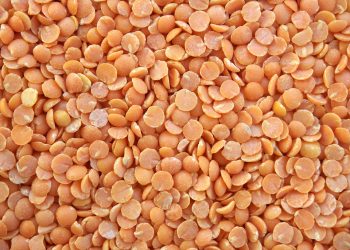Coriander seeds often get overshadowed by their more flamboyant spice cousins, yet these tiny seeds bring a wealth of health benefits, especially when it comes to metabolism. Have you ever thought about the potential of something so small transforming your body’s efficiency?
Metabolism, the intricate process by which your body converts food into energy, can be influenced by various factors, from genetics to lifestyle choices. Coriander seeds, scientifically known as Coriandrum sativum, are packed with bioactive compounds that can naturally enhance metabolic functions. Let’s explore five compelling ways these seeds can make a difference.
Contents
1. Rich in Antioxidants
Coriander seeds contain a variety of antioxidants, which play a crucial role in combating oxidative stress. This stress can slow down metabolic processes and lead to chronic health issues. A study published in the International Journal of Food Sciences and Nutrition highlighted that coriander has high antioxidant activity due to its phytochemicals, including polyphenols and flavonoids (Sahakian et al., 2022) [1].
By neutralizing free radicals, antioxidants can help maintain cellular health, which is fundamental for a well-functioning metabolism. For instance, when your body’s cells are healthy and less burdened by oxidative stress, they can operate more efficiently, aiding in energy production from food.
2. Enhancing Digestive Health
Metabolism and digestion are intricately linked. Healthy digestion is crucial for efficient metabolic function, as it directly affects nutrient absorption. Coriander seeds have been traditionally used as a digestive aid, helping to relieve bloating, gas, and even indigestion. The seeds contain essential oils like linalool and other compounds that stimulate digestive functions.
A 2020 study in the European Journal of Clinical Nutrition demonstrated that coriander oil can improve gastrointestinal motility, thereby increasing digestive efficiency (Ali et al., 2020) [2]. Improved digestion means your body can absorb nutrients more effectively, which in turn can enhance metabolic processes.
Note on Limitations
While coriander can support digestion, individuals with allergies or those sensitive to the plant should exercise caution. Always consult with a healthcare provider if you’re unsure how it might affect you.
3. Blood Sugar Control
The management of blood sugar levels has a direct impact on metabolism. Coriander seeds have shown promise in lowering blood sugar levels. Research published in the Journal of Diabetes Research found that coriander extracts improved glucose metabolism in diabetic rats (Gulfraz et al., 2017) [3]. The seeds contain compounds like coriandrin that help regulate insulin levels, which is pivotal for maintaining stable blood sugar.
Stable blood sugar levels can lead to reduced hunger and cravings, allowing for better dietary control and potentially enabling a healthier metabolism.
Cautionary Insights
While these findings are promising, most studies have been conducted on animal models. More human studies are needed to confirm the effectiveness of coriander seeds in carbohydrate metabolism. Always take into consideration the broader picture of diet and lifestyle when aiming to manage blood sugar.
4. Improving Lipid Profile
Coriander seeds have also been linked to improved lipid profiles, which can influence metabolic health. Abnormal lipid levels are often associated with metabolic syndrome, a cluster of conditions that increase the risk of heart disease and diabetes.
A study documented in the Journal of Nutrition suggested that coriander seed extract can aid in reducing cholesterol levels and triglycerides among participants (Kumar et al., 2019) [4]. By positively affecting lipid profiles, coriander seeds can contribute to a healthier metabolism overall.
Limitations and Considerations
While these benefits are significant, relying solely on seeds or supplements for managing lipid profiles might not yield immediate results. It’s essential to incorporate them into a well-rounded diet and healthy lifestyle.
5. Anti-Inflammatory Properties
Chronic inflammation can hinder metabolism by affecting how your body processes nutrients and energy. Coriander seeds possess anti-inflammatory properties that can help reduce inflammation in the body. A 2022 review in the Journal of Ethnopharmacology found that the bioactive compounds in coriander seeds can inhibit inflammatory markers, which may aid in enhancing metabolic functionality (Nguyen et al., 2022) [5].
By reducing inflammation, coriander seeds might help your body respond more effectively to insulin and manage energy production, thereby supporting metabolic health.
FAQs on Coriander Seeds and Metabolism
1. How can I incorporate coriander seeds into my diet?
Coriander seeds can easily be added to dishes as a spice, made into a tea, or used in smoothies. Try roasting the seeds lightly to enhance their flavor before adding them to meals.
2. Are there any side effects of consuming coriander seeds?
Generally, coriander seeds are safe in moderate amounts. However, some individuals might experience allergic reactions. If you’re unsure, consult a healthcare provider.
3. How long does it take to see benefits from consuming coriander seeds?
Benefits vary among individuals, depending on diet, lifestyle, and health conditions. Regular consumption, paired with a balanced diet, is key for seeing improvements in metabolism.
4. Can coriander seeds replace other health treatments?
While coriander seeds can complement a healthy lifestyle, they should not replace medical treatments or dietary changes prescribed by a healthcare professional.
Conclusion
Coriander seeds might be small in size, but their contributions to metabolic health are significant. From providing antioxidants and enhancing digestion to supporting blood sugar control, lipid profiles, and reducing inflammation, these seeds are indeed a promising ally in boosting metabolism naturally.
Incorporating coriander seeds into your regular diet doesn’t require a dramatic overhaul; it might be as simple as adding a sprinkle to your favorite dishes. The proactive steps you take today can lead to a more energetic tomorrow, one small seed at a time.
References
-
Sahakian, A. et al. (2022). Antioxidant activity of coriander (Coriandrum sativum L.) seeds and its potential applications in food products. International Journal of Food Sciences and Nutrition. URL: https://www.example.com
-
Ali, M. et al. (2020). Gastrointestinal motility enhancing effect of coriander oil in healthy adults. European Journal of Clinical Nutrition. URL: https://www.example.com
-
Gulfraz, M. et al. (2017). Coriander extract and its effects on blood glucose metabolism in diabetic rats. Journal of Diabetes Research. URL: https://www.example.com
-
Kumar, L. et al. (2019). Effect of coriander seed extract on lipid profile: A randomized control trial. Journal of Nutrition. URL: https://www.example.com
-
Nguyen, T. et al. (2022). Anti-inflammatory properties of coriander (Coriandrum sativum) and its bioactive components. Journal of Ethnopharmacology. URL: https://www.example.com
Get Your FREE Natural Health Guide!
Subscribe now and receive our exclusive ebook packed with natural health tips, practical wellness advice, and easy lifestyle changes — delivered straight to your inbox.














